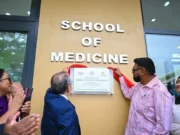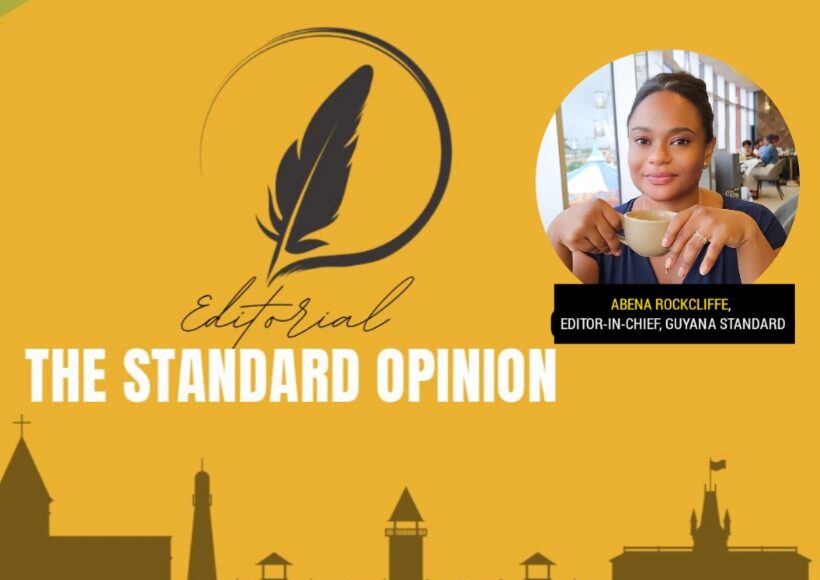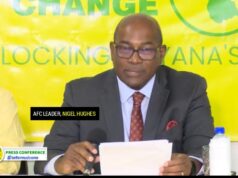By Abena Rockcliffe
The national conversation about cash grants must, and will continue. It is both a sexy topic politically (the masses are interested) and is regarded as a mechanism to solve social and economic problems. Therefore, the win-win effect is possible. Politicians can entice their voters while actually solving real problems. In Guyana’s political landscape, there are very few things that generate consensus, use of cash grants is one. All the major political parties agree that citizens should benefit from cash grants. The differences in opinions come at the level of detail: how much, how often, who should benefit, is there need for legislation etc.
My own concerns with cash grants, in the simple sense of it, (actual money handout), is that it should generally be used to help the poor and vulnerable. The extremely rich, and even those Guyanese who are “well off” should not be given cash handouts, except in cases where the government is seeking to emphasize a particular value. For example, all parents benefit from the “Because we Care” cash grant. I imagine that is the case because the government wants to emphasize the premium placed on education and to make any incentives for education as inclusive as possible.
When discussing cash grants with my colleagues, noting my firm belief that not everyone should benefit from the $100k, the point of every Guyanese being entitled to a share of the nation’s patrimony was raised. I asserted initially that the wider population will always benefit when the poor and vulnerable are taken care of, especially when it is done in a manner to ensure development so the poor will not always remain poor, and therefore, would not always be dependents. I argued too that everyone benefits when the crime rate is low and there is overall stability in the country. My mind was still sure that only the poor and vulnerable should benefit.
Further reading and discussions caused me to consider the fact that while I may think socially, government has to respond to situations on all fronts. This includes socially, economically and indeed, politically.
The government should be acutely aware of the importance of looking out for the poor and the vulnerable. But it should be able to respond to matters affecting other sections of society in the very simple form of cash grants. If the government wants more women in business, it should be able to say, for example, we are giving cash grants to women for their start up.
The use of cash grants cannot remotely be considered linear. But at the very base of each cash grant initiative, should be the principle of response, there must be a method to it and, in some cases, there must be responsibility placed on citizens as a return.
Still pondering on a point recently made by Attorney General Anil Nandlall that the cash grants distribution is government’s response to economic issues, I was left with this question, what is the government responding to by giving each person over 18-years-old, a one off $100k?
It was introduced as a measure to mitigate rising cost of living.
The News Room reported, “The cash grant, the President said, is part of the People’s Progressive Party Civic (PPP/C) government’s aim at reducing disparities in the country, guaranteeing that people have more disposable income.” https://newsroom.gy/2024/10/10/breaking-president-announces-one-off-200000-cash-grant-for-every-household/
Why should the rich, poor and middle-class benefit in the same amount from a cost-of-living measure? And how will that reduce disparity? At the very least, this measure maintains disparity and, in some cases, might actually widen the gap.
Why is this measure so counterproductive? A middle-income household of five adults may pool their resources and invest in a business idea. Meanwhile, a poor person will not think this way. Their intention may not be to squander but they might choose to pay off backed-up rent, stock up food to give their children a good Christmas or introduce fibre internet and buy a computer so their children can better be able to do their school work. In other words, the well-meaning poor couple will use this to keep their heads above water, the middle class might use it for an investment and the rich will most likely add it to their children’s account. Of course there are those, across the board, who might use it for entertainment.
The government said that via this set of cash grants, some $60B will be injected into the economy. Would we not have been able to give more to the poor if the rich didn’t also have to be fed from the same pot?
There are hundreds of Guyanese who are millionaires in US dollars. What cost of living policy would allow those persons to benefit in the same manner as persons scraping to get by?
The rich already benefit from tax breaks, write offs and other measures that the poor cannot access. Further, all drivers and commuters benefit from the government’s subsidizing of prices at the pump due to injections into GPL. All citizens benefit from the subsidy given to GWI so that the rates can be stable, even as cost to deliver increases. Everyone will benefit from free university education, everyone has access to free health care, good roads etc. But a measure to address cost of living and “reduce disparity” should not be extended to everyone. Especially since it would do nothing to shrink the wealth gap, the disparity will continue. And it is likely to create that fundamental challenge that occurs when more dollars are chasing the same amount of goods. Giving the money to everyone may actually make the money less impactful to the poor who are most affected by the cost-of-living situation.













